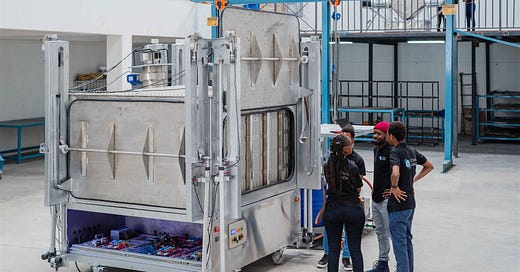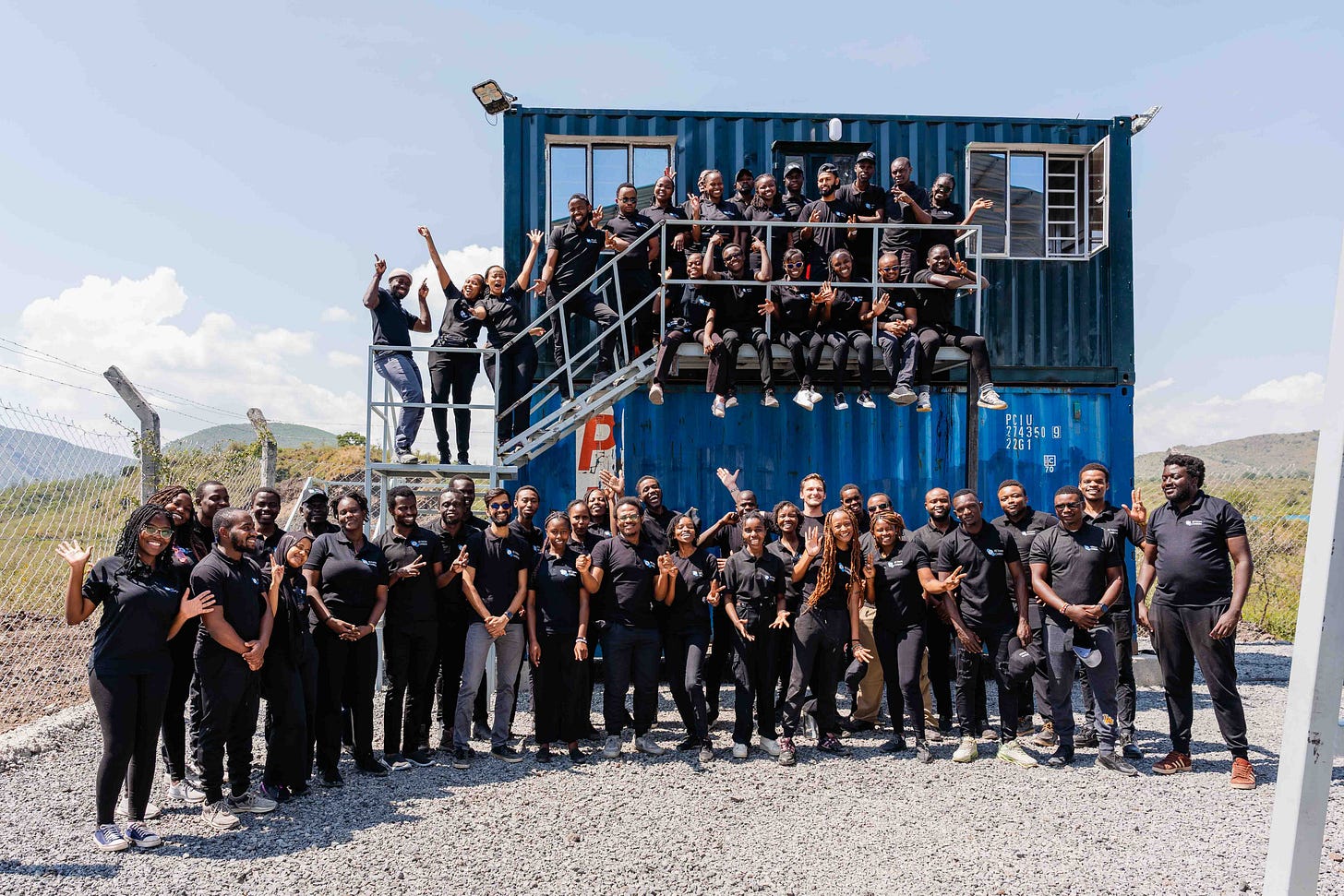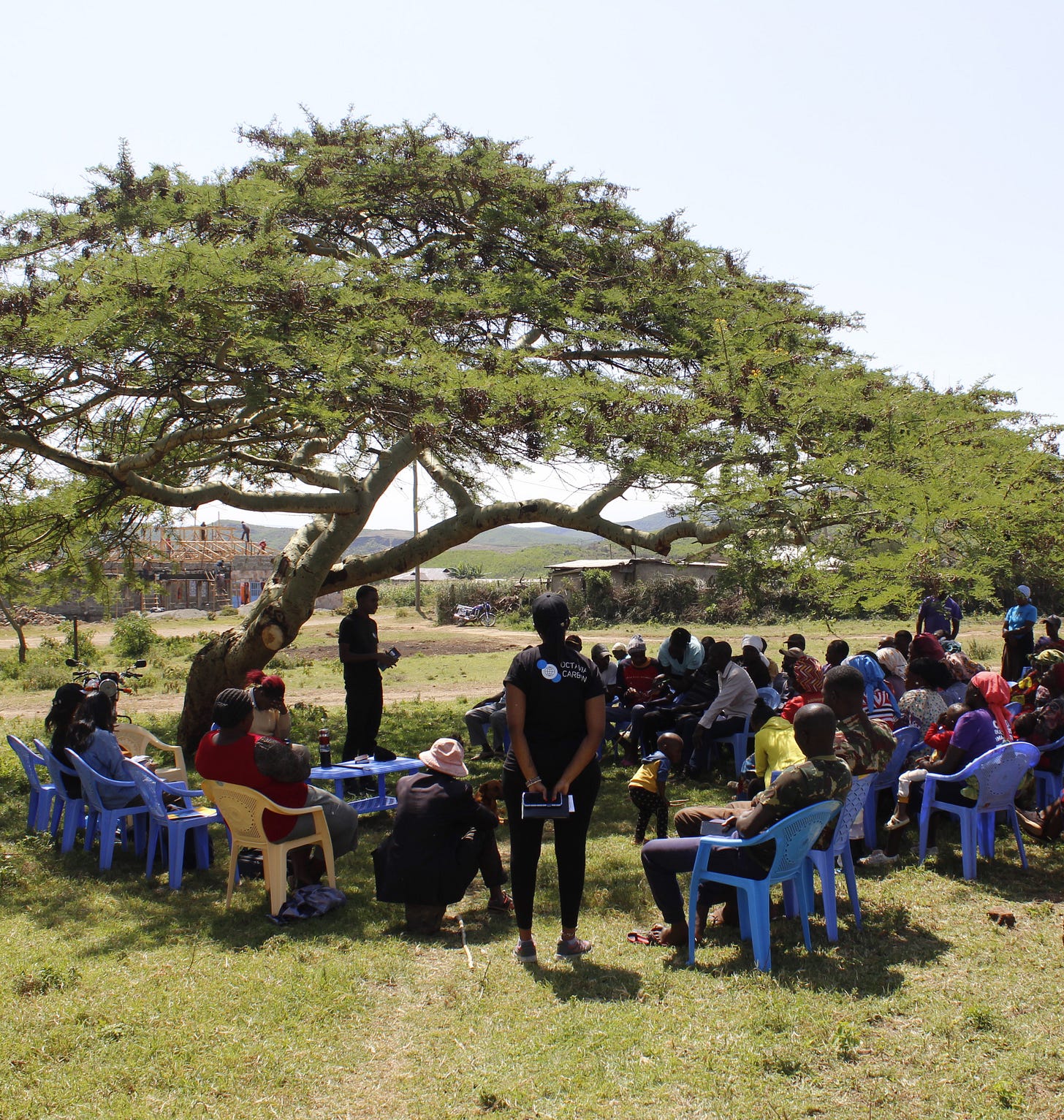By Aaron White
Not everyone knows this, but I spent 10 years living and working in East Africa. Most of that time was in Ethiopia, Kenya’s neighbor to the north, but I found myself in Kenya often—working on projects, drinking a few too many Tuskers with friends, and soaking in the energy of a country that’s always pushing forward. If you haven’t been, go. Drop the kids off at grandma’s, quit your job, and just go.
Living in East Africa changed me. I learned what true hospitality looks like—how a stranger can become family over a cup of coffee (or in Kenya’s case, chai maziwa). I saw how relationships and community run so much deeper than the individualism I grew up with. And more than anything, I became convinced that the future of our world is in Africa.
But I also saw, time and again, how well-meaning development and aid programs could go completely sideways. The two biggest culprits? Corruption and lack of community engagement. Projects would roll in with big promises but no local buy-in, and as a result, they’d fizzle out, stall due to mismanagement, or—worse—create resentment instead of progress.
That’s why, at Climate Karen, we don’t just look for companies removing CO₂ from the air—we look for partners who are doing it the right way. Octavia Carbon is one of those rare organizations that gets it. They’re proving that Direct Air Capture can be a Kenyan success story, built by and for the people who live there. And that’s exactly the kind of climate action we need more of.
Octavia is embedding themselves in the community, making sure their work actually benefits the people around them. Because carbon removal isn’t just about fixing the planet. It’s about who gets to be part of the solution.
Why Kenya? Because It’s the Perfect Spot for DAC
First of all, let’s give Kenya the respect it deserves—it’s not just a great place for DAC, it’s the best place for DAC. Here’s why:
Renewable Energy for Days – Kenya’s electricity grid is over 90% renewable. Compare that to, say, the U.S. (where we’re still burning coal, for crying out loud), and it’s clear why this is the place to scale up clean tech.
Rock Solid Geology – The Rift Valley’s volcanic basalt formations? Perfect for permanently locking away CO₂. Nature really said, Here, take this storage solution on the house.
Young, Brilliant Workforce – Kenya isn’t just rich in natural resources—it’s rich in talent. The next generation of climate tech engineers? Yeah, they’re coming out of Nairobi. Suck it Boston!
Octavia Carbon isn’t just tapping into these advantages—they’re making sure Kenyans own this industry. Because let’s be real: Africa shouldn’t just be a place where foreign companies set up shop. It should be leading the charge.
Octavia’s Community Engagement Playbook (aka How Not to Be a Neo-Colonialist)
Too many companies treat “community engagement” like a press release checklist. Octavia, on the other hand, has built their entire model around five core principles:
1. Local Leadership (Because Who Knows Kenya Better Than Kenyans?)
Octavia’s team is 98% Kenyan. Their co-founder, Duncan Kariuki, has never paid a bribe in his life (which, if you know anything about Kenya’s corruption challenges, is both rare and impressive). This isn’t some foreign-led experiment—it’s Kenyan innovation, built by Kenyans, for Kenyans.
2. Relationship Building (Not Just Free T-Shirts and a Ribbon-Cutting Ceremony)
Real talk: if your community engagement strategy is just showing up for a photo op, you’re already failing. Octavia actually lives in the communities they work in—literally. Over 20 of their employees have spent months in their deployment area, getting to know the people, showing up for local events, and building trust the right way.
3. Informed Consent (Because “Just Trust Us” Doesn’t Cut It)
DAC is complicated. Octavia knows that, so they go out of their way to demystify the tech—hosting open-door visits, town halls, and even letting local youth leaders peek inside their machines. No black-box secrecy, no tech-bro arrogance—just clear, honest conversations.
4. Local Value Creation (Because Extractivism Is So Last Century)
A lot of foreign companies roll into Africa, extract resources, and leave the locals with scraps. Octavia? They’re flipping the script. They’ve already hired locally, launched an apprenticeship program, and partnered with local training institutions to build a real talent pipeline.
5. Zero Corruption (Because Bribery is a Short-term Workaround)
Octavia refuses to play dirty. They’ve even put some of their own funding into Kenya’s branch of Transparency International. That’s right—they’re spending money to make sure they don’t have to bribe anyone. Iconic.
Africa Isn’t Just Participating in Climate Tech—It’s Leading It
Here’s the thing: the Global North still treats Africa like a place to offset emissions rather than a place that’s driving climate solutions. But that’s changing. Kenya is proving that DAC doesn’t have to be dominated by U.S. and European companies.
And yet, there’s a risk of green extractivism—where companies come in, use local resources, and funnel all the profits back to the Global North. Octavia is fighting that narrative by ensuring that jobs, revenue, and expertise stay in Kenya.
Beyond Carbon Removal: Octavia’s Real-World Impact
1. Training the Next Generation of Climate Tech Leaders
Through partnerships with local Technical and Vocational Education and Training (TVET) institutions, Octavia is giving young Kenyans the skills they need to thrive in the DAC industry. No gatekeeping, no foreign dominance—just real opportunities.
2. Fighting Period Poverty (Because Girls Deserve Better)
You can’t talk about development without addressing gender equity. Octavia’s Breaking Barriers program provides reusable sanitary kits and menstrual health education to help keep girls in school. Because no one should have to miss class because they can’t afford pads.
3. Supporting Local Entrepreneurs
Octavia is rolling out zero-interest loans to help small businesses and farmers in the region. No predatory lending, no shady deals—just actual support for people trying to build something.
4. Sports and Community Building
If you’ve ever been to Kenya, you know football (soccer, for the Americans) is a big deal. Octavia sponsors a local team, Jaica Talanta FC, because sometimes community engagement means just showing up for the things people care about.
5. Addressing Water Scarcity
One of the biggest local challenges? Access to clean water. Octavia is working with partners to fund boreholes, rainwater harvesting, and other sustainable solutions. Because climate action shouldn’t just be about carbon—it should also be about access to basic needs.
What This Means for Carbon Buyers
Buyers of carbon credits: pay attention. Not all carbon removal is created equal. If you’re investing in a DAC project that ignores local communities, you’re playing with fire. Octavia’s approach—rooted in real, transparent community engagement—isn’t just ethical; it’s smart business.
As buyers like Klimate.co and Carbonfuture have pointed out, Octavia’s deep community engagement makes their credits even more valuable. Companies need to ask themselves: Are we just extracting carbon, or are we investing in real, lasting impact?
Final Thoughts: Why We’re Betting on Octavia
At Climate Karen, we’re not just about carbon removal—we’re about carbon removal done right. Octavia Carbon is proving that DAC can be more than just a high-tech experiment; it can be a driver of economic justice, community empowerment, and long-term sustainability.
So yeah, we’re paying attention. And if you care about the future of climate tech, you should be too.







